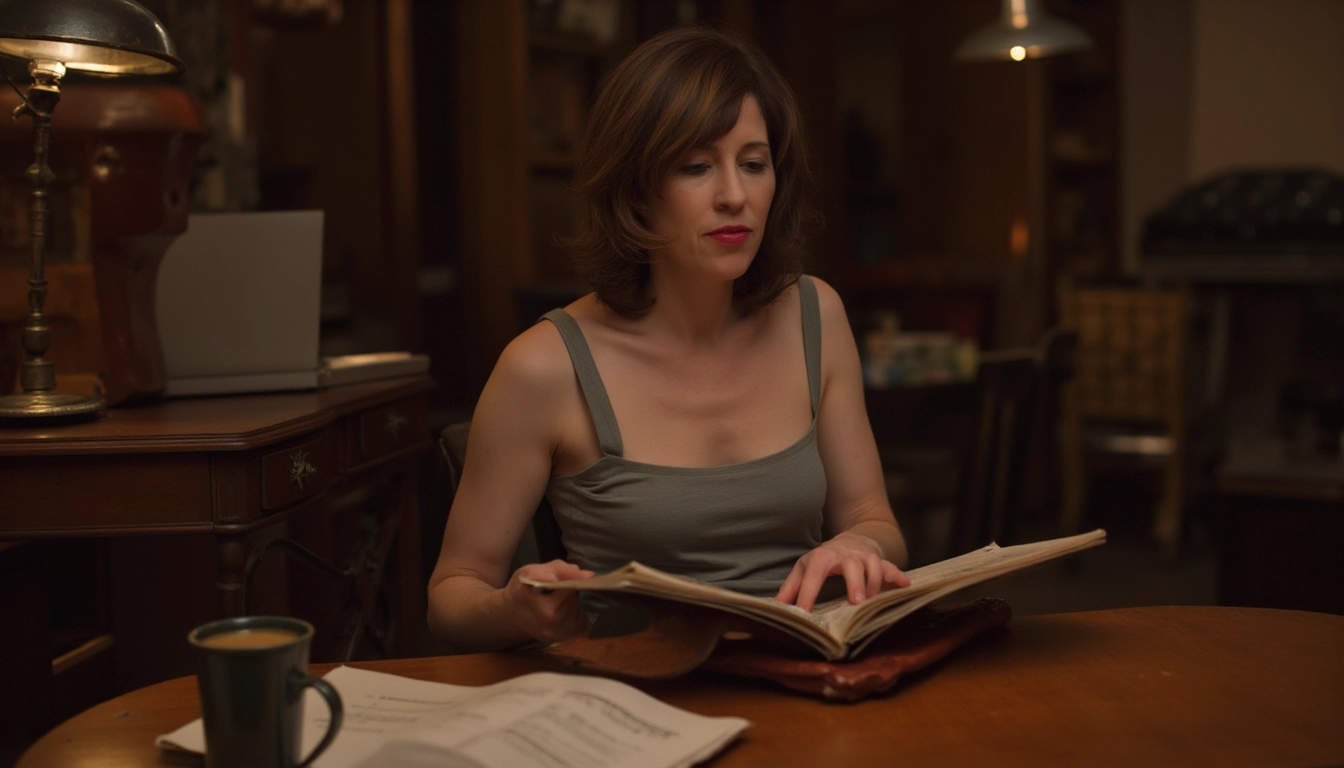
I came across an article tucked away in the pages of an old magazine—a piece so unexpectedly bold, it felt like discovering a forgotten gem in the attic. The author, long passed, wrote with a kind of raw insight that I’ve rarely seen, even in fiction. After some detective work, I was able to reach out to the author’s family. With a kindness and generosity that speaks volumes about their trust, they gave me permission to publish the article online—under the condition of anonymity. And so, here we are. Thanks to the family, I can share this astonishing work with all of you, even if the name behind it must remain unsaid.
Fact or Fiction?
What’s so striking about this article, though, is the way it plays with the line between fact and fiction. I’ve read it over and over, dissecting every sentence, and each time it leaves me questioning: how much of what we call “fiction” is really fiction? How many of these so-called made-up stories are actually truths cloaked in clever prose? When a writer pours their soul into words, are they creating or merely revealing? Was this author spinning a tale or slipping us glimpses of something that really happened, something hidden behind the veneer of imagination?
I think back to all the novels I’ve read over the years, each with its own allure, its own world meticulously created and characters crafted to feel real. I wonder now, did these authors simply know how to tell a good story, or were they revealing private truths in plain sight, under the guise of fiction? So often, the worlds they create are as vivid, as layered, as heartbreakingly authentic as life itself. We say it’s fiction, but is it? Or is it simply a version of reality, dressed up and spun out into something we can hold in our hands? The line, I think, is far thinner than we realise.
And if fiction is based on truth—or is, in fact, pure truth—what does that say about reality? Is my life, your life, truly real, or are we all just characters in a grand, unwritten story, as fictitious as anything on a page? It’s a strange thought, unsettling even. But I don’t know about you—I feel real. Every heartbeat, every laugh, every moment of quiet desperation; they all feel tangible, undeniably mine. And yet, I see myself in fiction. In the lives of characters who are supposed to be “made up,” I recognise my own desires, my own flaws, my own dreams and disappointments. So maybe fiction isn’t just a mirror of reality; perhaps it’s an extension of it. And maybe, just maybe, it’s through these imagined worlds that we find ourselves more real than ever.
Does Soho Exist?
Does this mean Soho doesn’t exist? My Soho, my life, my friends, my joys and heartbreaks, the place where I grew up and built every piece of who I am—is that all a story somebody has created for me?
I don’t think it’s as black-and-white as that. Soho exists, but perhaps it’s not just the streets and corners. It’s the friends who feel like family, the job that has carried me through good and bad, the late nights filled with laughter, the quiet moments shared over a drink, the little things that we carry with us long after the moment has passed. Soho is the rush of shared pleasure, the ache of loss, and the strength in connections that hold fast even through the messiness of life.
Maybe existence isn’t defined by walls and doors and postcodes. Maybe it’s a feeling, a collection of the people who fill our lives, the experiences that shape us, and the moments that stick. My Soho is real not because I can point to it on a map, but because it’s woven with every emotion I’ve ever felt—joy, pain, passion, belonging. This place, these people—they’re my reality. They’re the life I’ve lived and the home I’ve built. And in that way, Soho is as real as anything, if not more so, because it exists within me and the people I love.

Original Article
The Truth About Fiction
Fiction is, at its core, a state of mind—a carefully constructed lens through which we view, question, and sometimes transform reality. When rooted in truth and crafted to be believable, fiction doesn’t simply entertain; it challenges us to consider where the line between fact and narrative truly lies. Who is to say that a well-told story, woven with real emotions, familiar struggles, and plausible outcomes, isn’t another shade of truth? If it resonates, stirs something real within us, or even clarifies our understanding of life, can it be dismissed as mere fabrication?
At times, fiction may feel like a heightened or distilled version of reality, highlighting aspects of human experience that remain unspoken or unexplored. Through imagined characters and scenarios, we encounter relatable perspectives that can be as impactful as any objective fact. Fiction lets us wander through scenarios that haven’t happened but could, or through emotions we may not have experienced firsthand. It gives voice to hidden desires, amplifies societal issues, or deepens our empathy—all of which bring us closer to the truths of our existence.
So, is it truly fiction, or simply another lens through which reality is refracted? Perhaps fiction is both a crafted artifice and an essential means of reaching the underlying essence of human experience. It may not be a factual account, but it is often a profound version of reality—one that sometimes conveys more truth than the bare facts ever could.
